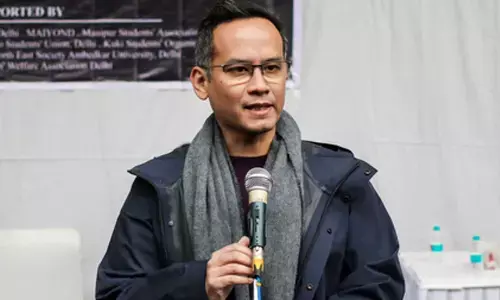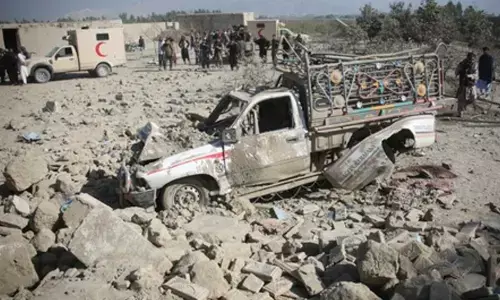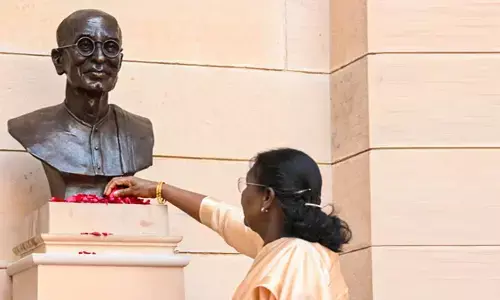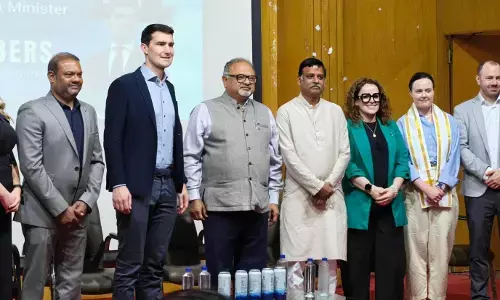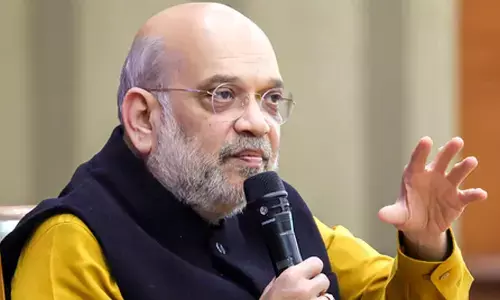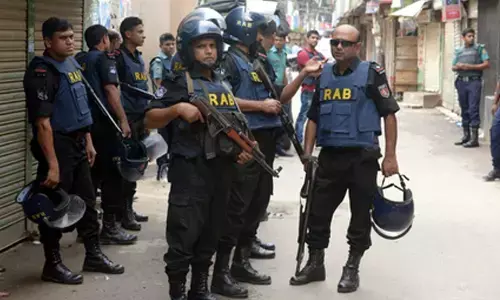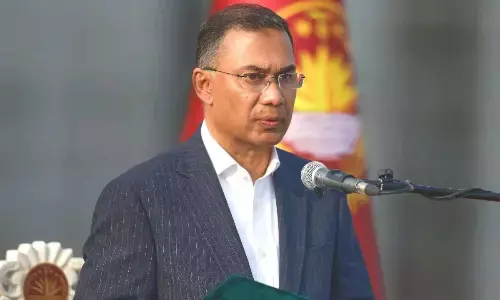Fast-track bulk drug parks
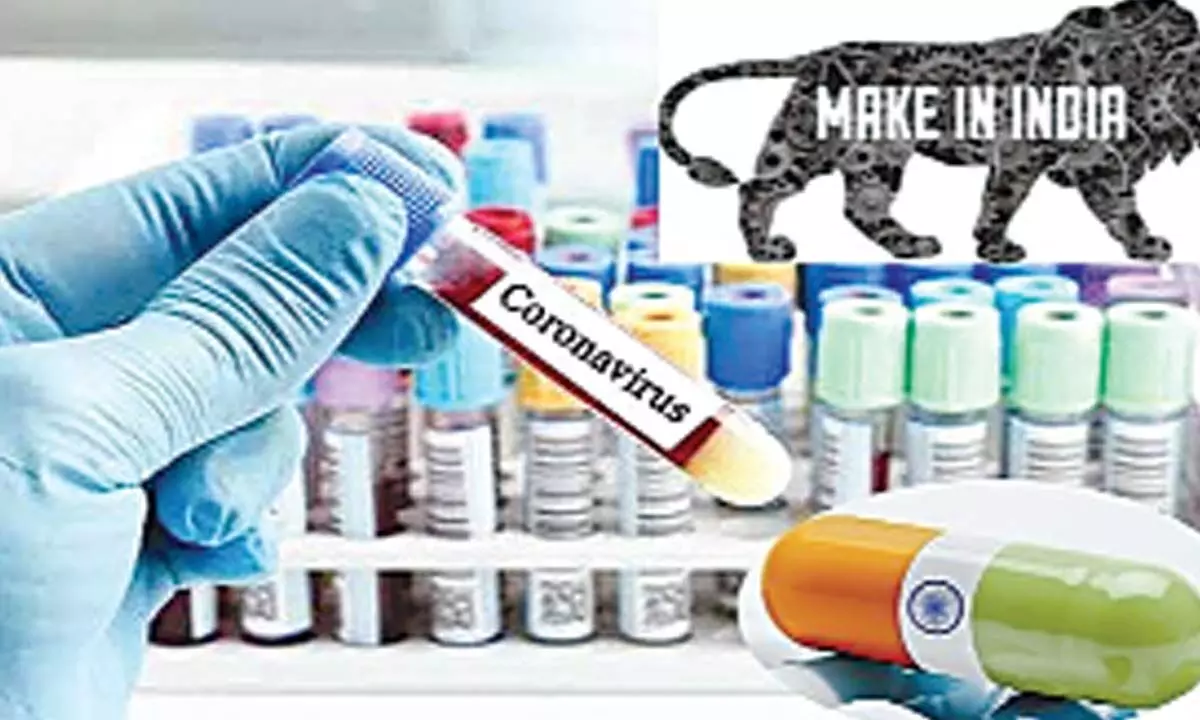
Fast-track bulk drug parks
A high-level panel set up to oversee the progress of bulk drug parks in Gujarat, HP and AP
The central government has recently constituted a high-level committee with industry representatives and technical experts to oversee the progress of bulk drug parks being set up in Gujarat, Himachal Pradesh and Andhra Pradesh. This high-level committee will ensure that the design, investments and infrastructure in these three bulk drugs parks are aligned with the strategic objectives of the Scheme for Promotion of Bulk Drug Parks.
In order to boost the domestic active pharmaceutical ingredient (API) industry in the long run, the central government had earlier given its approval for three Bulk Drug Parks, one each to Himachal Pradesh, Gujarat and Andhra Pradesh. The Department of Pharmaceuticals (DoP) has given its 'in-principle' approval to these parks under the Scheme "Promotion of Bulk Drug Parks", which is one of the key initiatives to support bulk drugs manufacturing in the country. The Scheme, with a financial outlay of Rs 3,000 crore notified in 2020, provides for financial assistance to three states for establishing bulk drug parks and aims to bring down the cost of manufacturing of bulk drugs by creation of world class common infrastructure facilities supported by the central government and thereby increase the competitiveness of the domestic bulk drug industry.
The financial assistance to the proposed bulk drug park in Gujarat and Andhra Pradesh would be 70 per cent of the project cost of common infrastructure facilities. In case of Himachal Pradesh, being a hilly state, financial assistance would be 90 per cent of the project cost. Maximum assistance under the scheme for one bulk drug park would be limited to Rs. 1000 crore. As per the proposals submitted by these states, the bulk drugs park will be established in 1402.44 acres of land at Haroli tehsil, Una district, Himachal Pradesh; 2015.02 acres of land at Jambusar tehsil, Bharuch district in Gujarat; and 2000.45 acres of land at KP Puram & Kodhada of Thondagi Mandal of East Godavari district in Andhra Pradesh.
The DoP had earlier constituted a Scheme Steering Committee to monitor the scheme at operational level. But the government felt the need to set up a high-level committee with industry representatives and technical experts to make sure that the design, investments and infrastructure in the parks are in line with the goals of the scheme. Now, this committee will monitor the implementation of bulk drug parks, for ensuring the production of the bulk drugs required for strategic goal of drug security; facilitating alignment of investments in the bulk drug parks with pharmaceutical industry requirements and public health needs and facilitating transfer of technology and other interventions required to achieve the above objectives.
The committee may co-opt other experts as and when required. The committee will hold meeting at least once in three months. That the government attaches utmost importance to the committee is clear from the fact that the panel is chaired by none other than the Union Minister of Chemicals and Fertilizers, Dr Mansukh Mandaviya. Bhagwanth Khuba, Minister of State for Chemicals and Fertilizers will be deputy chairman of the committee while joint secretary, Department of Pharmaceuticals (DoP) will be the member secretary. The members of the panel include secretary, DoP; Drugs Controller General of India; joint secretary (drug regulations), Department of Health and Family Welfare; additional chief secretaries/ principal secretaries, industry department, Gujarat, Himachal Pradesh, Andhra Pradesh; chief executive officers/managing directors of state implementing agencies; president of industry associations like Indian Pharmaceutical Alliance, Indian Drug Manufacturers' Association, Bulk Drug Manufacturers Association of India, Organization of Pharmaceutical Producers of India; and two representatives from National Institutes of Pharmaceutical Education and Research (NIPERs).
Of course, by launching the Bulk Drug Parks scheme, the government wanted to minimize the country's dependence on imports and to give fillip to indigenous manufacturing.
It may be noted that imports of bulk drugs and drug intermediates from China to India have increased by around 20 per cent in the fiscal year 2021-22, and accounted for almost 66 per cent of the total imports during the year. The DoP is implementing the Scheme for Promotion of Bulk Drug Parks to make the country self-reliant in bulk drugs (active pharmaceutical ingredients /key starting materials and drug intermediates) and keeping in mind the strategic objectives of drug security for the country, which is an intrinsic part of the efforts of government of India towards drug security.
The scheme will create a robust ecosystem for the manufacturing of bulk drugs in the country and also will reduce the manufacturing cost significantly, by providing easy access to standard testing and infrastructure facilities. This scheme is expected to encourage domestic manufacturing of bulk drugs to reduce import dependence and to establish a dominant position in the global market. So, the constitution of a high-level panel will expedite the establishment of bulk drug parks in India.
(The author is a freelance
journalist with varied experience in different fields)


